New Delhi: Qasim Rasool Ilyas, a founder-member of the All-India Muslim Personal Law Board has a giant task at hand. He is making an unprecedented outreach on behalf of the board to Christians, Sikhs, and tribal leaders to join forces against the proposed Uniform Civil Code.
This effort comes at a critical juncture for the AIMPLB. Following the loss of its long-fought battle for the Babri Masjid, the board seems to have lost momentum. There are rumblings from the Muslim community about its weakening role in stemming the tide of hate targeted at them in recent years. Calls for reforms within the board are rising. Now, with the existential threat of the Uniform Civil Code (UCC) looming large, the AIMPLB is grappling with dissent and leadership conflicts, and a pervasive fear of wading into any territory that may give Hindutva groups an advantage.
But the UCC is a battle they can’t look away from.
In a few weeks, the AIMPLB is planning to convene a roundtable with other religious organisations to develop a unified strategy for protecting their faiths against the UCC. Fighting such battles alone is fraught with larger risks these days.
“The biggest challenge before the board is the UCC. It undermines our constitutional rights to practice and propagate our religion. The slogan of one nation, one law is absurd. Laws are even different from state to state,” Ilyas said. “Any law made by humans that eliminates the diversity of the country and interferes with customary laws is unacceptable to us.”
Dissatisfaction among many Muslims with the AIMPLB stems from its perceived reluctance to fully engage with the changing politics of India. But board members argue they want to calibrate their responses rather than jumping into every issue.
Also Read: Nehru’s Hindu Code Bill vs Modi’s UCC— same script, same drama, different Indias
‘Dissatisfaction’ among Muslims
Over the past year, questions about the AIMPLB’s leadership have intensified, with growing outrage over perceived nepotism.
Last June, Khalid Saifullah Rahmani became the board’s president, succeeding his uncle Maulana Syed Rabey Hasani Nadwi, who had served in the role since 2002 until his death in April 2023.
“There is immense anger in the community due to nepotism in the leadership of the board,” said independent journalist Shakeel Ahmed, who has written about the board for a decade.
The once-powerful board, he added, has been conspicuously absent in addressing many of the issues that have bedevilled the Muslim community in the past decade, causing “significant dissatisfaction” within the community. They confine their role to interpretation of Sharia law alone.
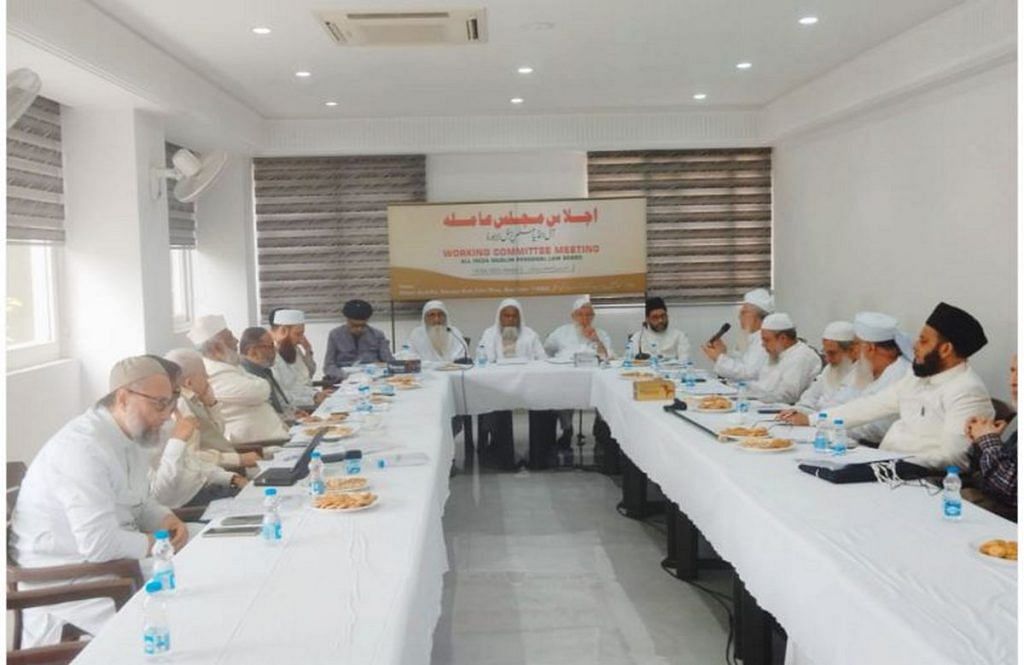
“Earlier, the board’s leadership would meet with ministers and leaders. Now, they only release press statements,” Ahmed said.
Some of the board’s current reticence, according to him, stems from the government’s crackdowns on foreign funding for NGOs, including affiliates of the Jamiat Ulema-e-Hind, an organisation of Islamic theologians.
BJP leaders like former Uttar Pradesh minister Mohsin Raza have also previously questioned the funding of the AIMPLB—which was established as a non-governmental organisation in 1973 to protect Muslim personal law in India. The board, however, has not commented on the matter.
Internally, the AIMPLB has seen no major structural changes in the 51 years since its inception. Critics claim the board is too focused on appeasing diverse Muslim sects and thus acting with diffidence rather than decisiveness.
The board is not sitting quietly. Things are being handled gradually. Instead of adding fuel to the fire, efforts are being made to resolve things peacefully
-AIMPLB spokesperson Kamal Faruqui
“They try to satisfy all the Muslim schools,” complained a former chairman of the Delhi Minorities Commission (DMC).
The five-decade-old national board elects a new president every three years, chosen by 251 general body members who also select the 45-member executive body. It appoints five vice presidents and elects a general secretary along with four secretaries. The president of the board always belongs to the Hanafi school, the oldest in the Sunni sect, as they have the largest population in the country, but the vice-presidents come from varying ideological backgrounds.
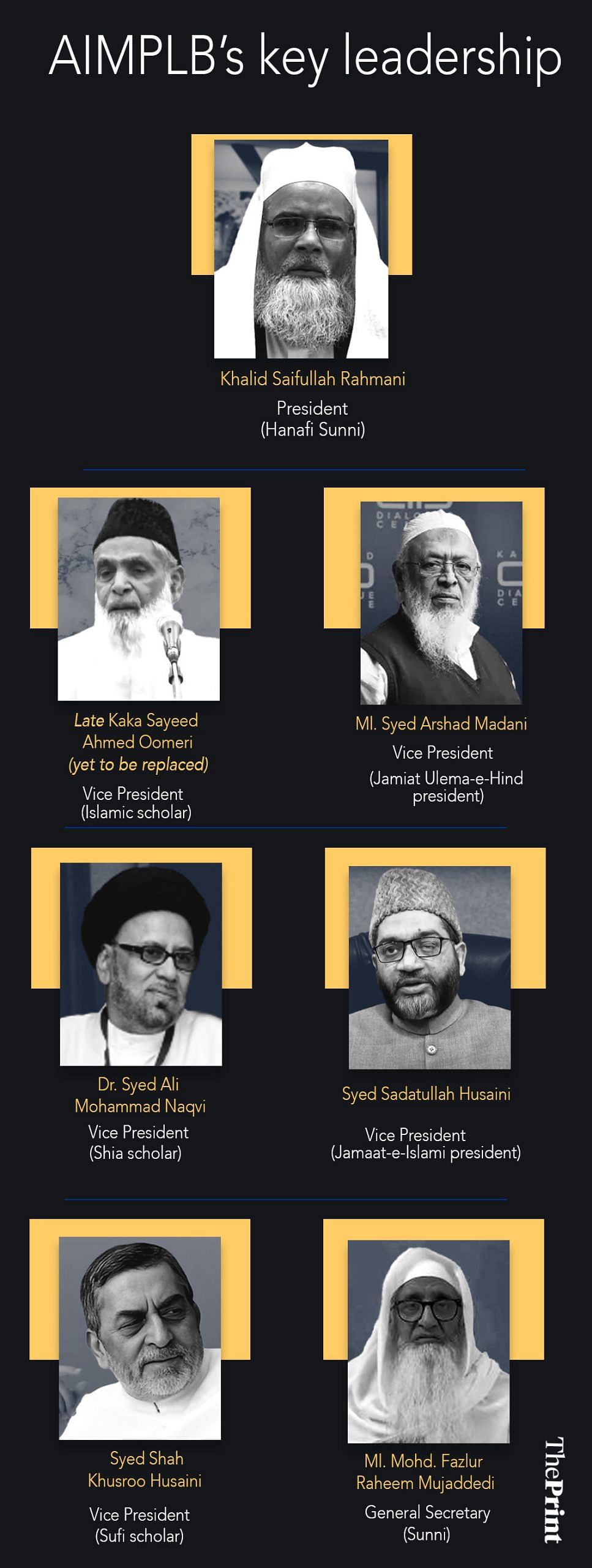
While issues like Babri united the board, this diversity means that coming to a consensus is not always straightforward.
The AIMPLB’s handling of various Sharia-related issues has been mixed. Although the board took a strident stand on defending triple talaq, its response to the hijab controversy was more muted.
This is a sore point for Asma Zehra Tayeba, a current member of the AIMPLB and former convener of its women’s wing. She criticised the board’s inaction ahead of the Karnataka High Court’s decision to ban hijab in educational institutions on the grounds that it was not an essential part of Islam. She said the students were left to fend for themselves.
“The AIMPLB has not taken the hijab issue seriously. The girls went to the Karnataka High Court, where the judges were asking them, is it essential to Islam? This is where they failed and lost the case,” Tayeba said. “The students had to make all the effort by themselves. They were neglected by the national organisation.”
The board’s limited interventions, like requesting the Karnataka government to withdraw its hijab order, issuing statements about the move affecting Muslim girls’ education, and appealing in the Supreme Court, proved too little too late for many
Tayeba further alleged that the government targets not only Muslim family structures and laws but also women for higher fertility rates, despite similar rates in other communities. She also pointed out that Muslims and Hindus also struggle with the same economic problems, including inflation and unemployment.
“The AIMPLB has not given a statement on this,” she said.
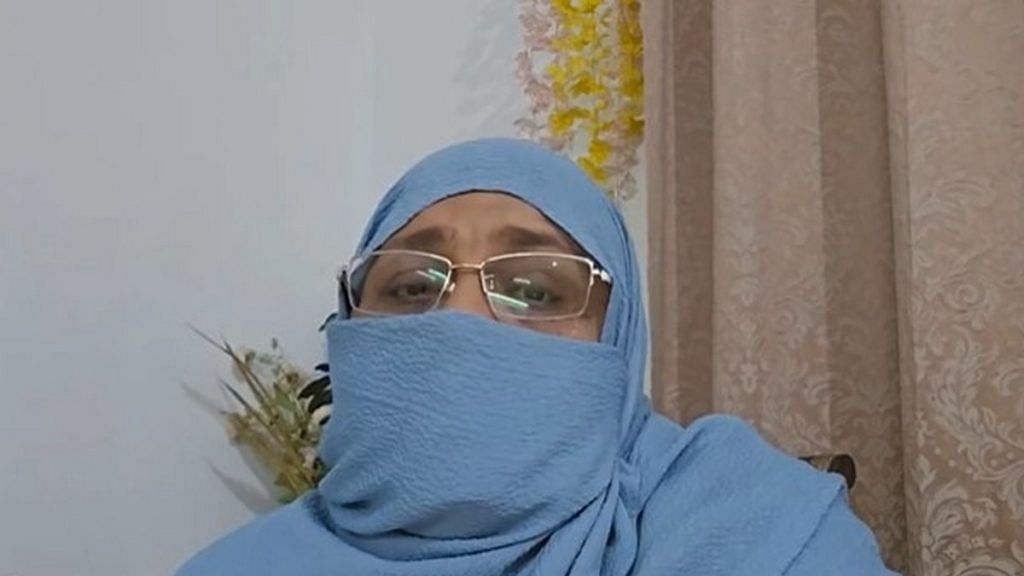
The hijab row isn’t the only issue that the AIMPLB has been relatively subdued about. Compared to their stance on Babri, their response to the evolving Gyanvapi mosque and the Places of Worship Act (PWA) 1991 has been relatively lacklustre too, according to detractors.
While it did approach the Supreme Court in 2022 to oppose petitions challenging the PWA—which bars lawsuits to reclaim or alter the character of places of worship as they stood on 15 August 1947—a Varanasi court has since allowed Hindus to pray at the Gyanvapi mosque cellar. The AIMPLB is yet to follow up on its vow to challenge this in the apex court.
The Muslim community’s eyes are now on the board to see how they address the latest hot-button issues, including the Uttarakhand uniform civil code, implemented earlier this year.
The UCC is their single biggest agenda right now. If it fails to act decisively, it may have no future. Sharia law would no longer be admissible under a uniform civil code.
“If UCC comes into the country, the board will end,” Tayeba said.
From Shah Bano to the triple talaq struggle, the Board’s positions on women’s rights have been widely criticised as patriarchal and unjust. And now more women are knocking on the doors of courts for justice.
Dialogue with Modi?
With limited political representation, Muslims often turn to advocacy organisations to address their concerns. Dissatisfaction with the AIMPLB stems from its perceived reluctance to fully engage with the changing politics of India. But board members argue they want to calibrate their responses rather than jumping into every issue.
“We are not a political party or an NGO,” said AIMPLB spokesperson Kamal Faruqui, despite the AIMPLB’s official social media handles referring to it as an NGO. A long-term view of the board’s work should be taken, according to him, and knee-jerk reactions are not advisable.
“Whenever a new team comes in, it takes time to grasp things. Rahmani sahab became president amid turmoil. People should consider whether each decision will benefit society,” Faruqui said. “The board is not sitting quietly. Things are being handled gradually. Instead of adding fuel to the fire, efforts are being made to resolve things peacefully.”
The AIMPLB stays away from politics. We confine ourselves to Sharia law. If anyone interferes with our Sharia, we only seek legal recourse against them
-Maulana Khalid Saifullah Rahmani, AIMPLB president
Faruqui also warned against playing into the BJP’s communal agenda through aggressive protests.
“We can protest against this oppression by coming out on the streets. But they want us to do that and then start beating us and increase their vote bank. This would mean that we have fallen into their trap,” he said.
The former chairman of the DMC agreed that the board strategically avoids controversy currently. While previous presidents would raise social issues related to the community, the focus has now returned to Sharia law.
However, the BJP getting a weaker mandate in the recent Lok Sabha elections has boosted the confidence of the Muslim community. The AIMPLB is also considering taking steps in response.
“The board is contemplating how and when to commence the dialogue with the government,” said Faruqui, referring to not just the UCC but other issues affecting minority communities.
No politics, only Sharia
The board’s official line is clear: its job is to uphold Sharia law, not engage in politics.
“The AIMPLB stays away from politics. We confine ourselves to Sharia law. If anyone interferes with our Sharia, we only seek legal recourse against them,” AIMPLB president Maulana Rahmani told ThePrint.
In this arena, too, it picks its battles cautiously.
On the hijab matter, for instance, the AIMPLB aimed to limit the controversy to Karnataka and opted for a cautious approach. In December 2021, when a college barred hijab-wearing students, the board took cognisance but, after consulting stakeholders, decided to treat it as a “local” issue, Maulana said in April 2022.
However, the situation quickly snowballed into a national controversy, leading to a state government order enforcing a “uniform dress code” and various institutions banning hijabs. Students who challenged this in the Karnataka High Court, arguing that the hijab was essential to their religious practice, lost their case.
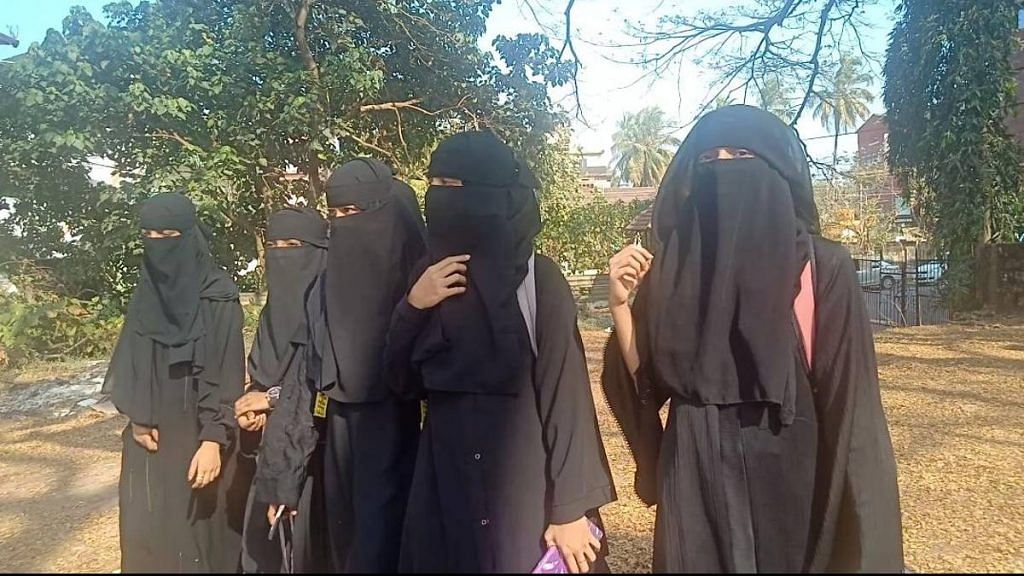
It was only at this late stage that the AIMPLB swung into action and moved the Supreme Court. It said that the judgment was “blatantly partisan and communal” and that all major schools of Islam agreed that not wearing a hijab amounted to a “sin”.
Board members maintain that in this case, a cautious approach was prudent. Ilyas said a more assertive stance on political issues could destabilise the organisation due to its diverse membership. Rather than picking up cudgels, the board aims to achieve consensus on Sharia, even if interpretations vary and it takes time.
AIMPLB secretary Dr Yaseen Ali Usmani recounted that on the issue of triple talaq, the Ahl-e-Hadith school held that giving triple talaq at once does not result in divorce, while the board considers that it does. Despite their disagreement, they ended up standing with the board.
“We don’t face conflicts because there is fundamental agreement among everyone. All of us want to preserve Sharia law. And, we don’t interfere in each other’s customs,” he said.
In 2016, after five Muslim women took their fight against triple talaq to the Supreme Court, the AIMPLB defended the practice’s validity vociferously. They argued that discontinuing the practice could lead men to “murdering or burning alive” their wives to avoid lengthy legal proceedings.
The following year, the AIMPLB urged the central government to withdraw a bill (now an Act) providing legal protection to Muslim women against instant triple talaq. They said it violated Sharia principles and was a “dangerous” conspiracy to strip Muslim men of their divorce rights.
Since then, the AIMPLB has been less vocal. Faruqui put it down to the board not taking emotional decisions and considering ground realities before acting.
He said the board has been closely monitoring PM Modi’s statements against Muslims, hate crimes, attacks on mosques, and is considering counter-measures such as petitions, grassroots campaigns, and meetings with leaders from both the government and the opposition. But they have not yet made any decisions.
“We are serious about the rights of the community,” Faruqui added.
Fissures within
The board is often criticised for taking positions that run counter to women’s rights. It has attempted to address this perception in recent years, but it’s been something of a rollercoaster.
In November 2016, the late board president Maulana Nadwi formed the first-ever women’s wing to champion social reforms among Muslim women. This coincided with the growing national debate on triple talaq.
The new wing operated a helpline, organised awareness campaigns about women’s rights within Islam and the Constitution, and held press conferences on issues like triple talaq.
However, on 11 October 2022, the women’s wing was abruptly “suspended”, and its social media accounts deleted.
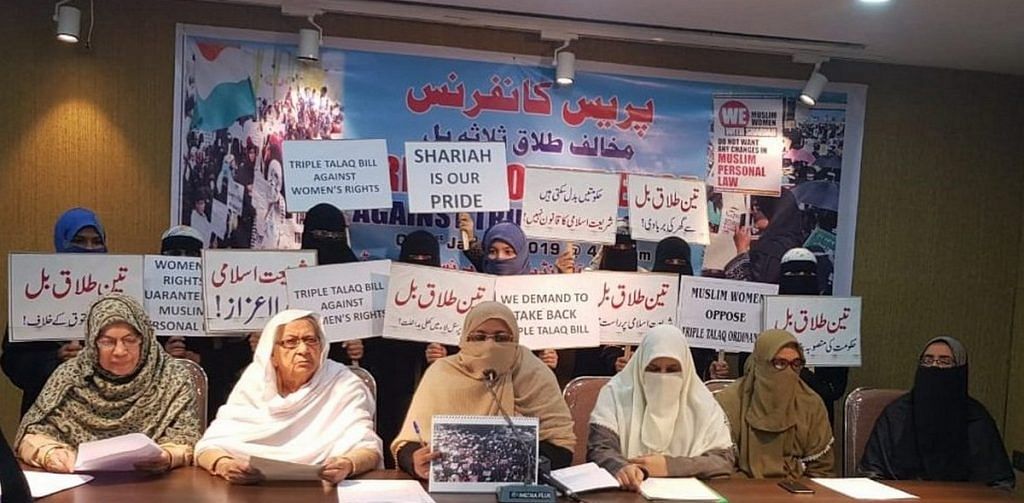
Tayeba, then chief of the wing, recalled Khalid Saifullah Rahmani sending her a letter that used the Urdu word “tehleel”, which means ‘dissolve’. The diktat, she alleged, followed the women’s wing’s desire to play a proactive role in the hijab controversy.
“The board members were assertive about restricting the issue to the state, but the women’s wing argued that it had already become a national issue due to social media,” she said.
During the hijab hearing, the Karnataka High Court sought written input from the AIMPLB, but although the women’s wing advocated for a comprehensive response with references to Islamic scholars, the board refrained due to ongoing legal proceedings, according to Tayeba.
Tensions escalated when the women’s wing issued a statement expressing their “solidarity” with the Karnataka’s girls.
“The board members objected because it did not align with their stance,” Tayeba said. “Then they said that there was no need for additional social media accounts since the board already has an official account. That’s why they asked the wing to shut down its accounts on Twitter and Instagram.”
The women’s wing was eventually reinstated in February 2022, but Tayeba resigned from the AIMPLB working committee on 23 October 2023, citing unfair treatment and lack of due process.
Our community is stuck between an oppressive government and illiteracy-poverty. We shouldn’t wait for extreme situations.
-Asma Zehra Tayeba, AIMPLB member
The board, meanwhile, denies suspending the women’s wing due to disagreements.
Ilyas claimed that the AIMPLB typically sets guidelines for new bodies, but made an exception for the women’s wing, which operated without formal structure for seven years under then general secretary Wali Rahmani.
After Wali’s death in April 2021, Ilyas added, the board dissolved the wing to create uniformity and set up a committee to explore its eventual revival.
Countering this, Tayeba said that Wali had instructed the women’s wing to have a separate social media account, as it’s a completely different entity. She reinforced the wing’s alignment with the board’s triple talaq stance, but said the hijab issue had caused much unhappiness.
“Women from the community felt let down and they are still feeling it,” she said. “The expectations from the AIMPLB are high. We are a united platform and we need send the message to the community.”
The board, on its part, claims to have increased women’s representation.
On 29 May this year, AIMPLB conveners from across the country gathered at Hyderabad’s pink Al Mahadul Aali Al Islami Madrasa and distributed tasks among its members. They also included more women in the board’s ranks.
Previously, the board had 24 women members. Now, 30 out of AIMPLB’s 251 members are women, with four on the 51-member executive committee.
“We have significantly expanded the women’s wing,” said AIMPLB president Rahmani. “We have given more representation to women compared to before.”
He attributed the delay in re-establishing the wing to the careful process of developing its rules and regulations.
AIMPLB secretary Dr Yaseen Ali Usmani said the board is increasing its outreach to Muslim women to address their concerns about being targeted by Hindutva organisations. Another goal is to raise awareness about women’s rights under Shariah law.
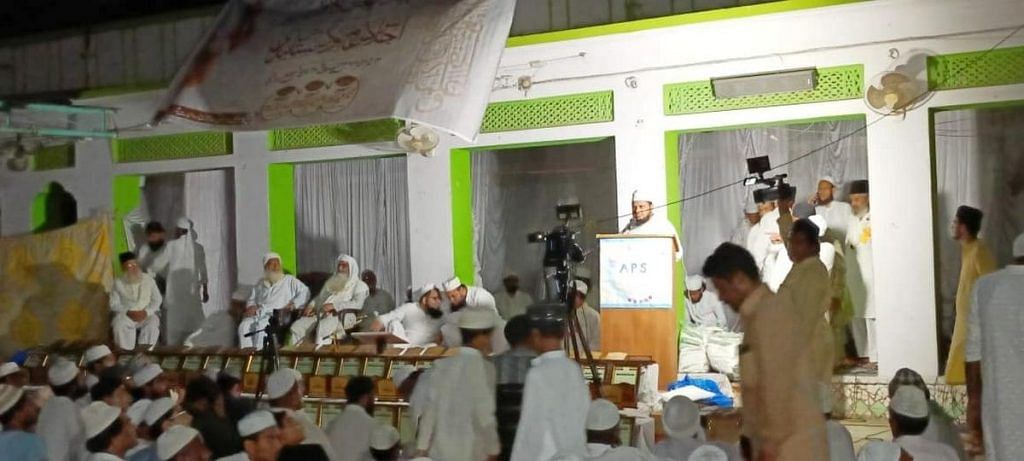
“The majority’s culture and laws are being imposed on us. We need to raise awareness about personal laws,” said Jaleesa Sultana, the new convenor of the women’s wing.
The new members of the women’s wing, including Islamic scholars and former board members, are focusing on eradicating dowry practices, preventing child marriage, and securing women’s property rights, among other issues, according to Sultana.
These efforts are part of the board’s ongoing endeavour to introduce reforms within the community in accordance with Sharia laws.
To streamline work and distribute responsibilities, the AIMPLB has formed various sub-committees. The previously all-male Islah-e-Muashara (Social Reform), Tafheem e Shariat (Sharia Understanding), and Darul Qazah (Judiciary Board) sub-committees now include women. In the Hyderabad meeting, three women were assigned to Islah-e-Muashara, two to Tafheem e Shariat, and one to Darul Qazah.
The AIMPLB has not yet decided which stakeholders from other communities to engage, but Sikh, Parsi, Christian, Buddhist, and tribal organisations are already opposing the UCC.
5 decades of fear crystalising
The AIMPLB was formed 52 years ago, based on a deep-seated fear of a uniform civil code. This fear remains as strong today as it was then.
The board’s formation was precipitated by the introduction of the 1972 adoption bill in Parliament, which granted inheritance rights to adopted children. This contradicted Sharia tenets and caused widespread concern among Muslims. But more than that, it was how then law minister HR Gokhale characterised the bill. He called it the first step towards a UCC.
Muslim scholars and leaders vehemently opposed the bill and then came together to discuss the matter in a December 1972 personal law convention in Mumbai. This meeting culminated in the AIMPLB’s formation.
The majority’s culture and laws are being imposed on us. We need to raise awareness about personal laws
-Jaleesa Sultana, convenor of AIMPLB women’s wing
A few months later, in April 1973, a conference in Hyderabad officially established the board, with Maulana Qari Mohammad Tayyab as its first president. With the Muslims community uniting under the AIMPLB’s leadership, the government withdrew the adoption bill in 1978—the board’s first major victory.
But the same year another challenge erupted, this time from within the community. In April 1978, a 62-year-old woman, Shah Bano, filed a lawsuit for alimony from her ex-husband, who objected that Muslim personal law did not allow for this. In 1985, the Supreme Court issued a verdict in favour of Shah Bano, immediately triggering outrage and protests among Muslims. As the pressure mounted, the Rajiv Gandhi government passed the controversial Muslim Women (Protection of Rights on Divorce) Act, 1986, nullifying the Supreme Court’s judgment.
Ilyas claims that a “false narrative” was created about the AIMPLB’s stance on Shah Bano.
“We didn’t oppose Shah Bano’s husband providing her with lifelong maintenance, but we objected to it becoming law,” he said. “We cannot accept any decision that interferes with Sharia law. It’s not acceptable to us.”
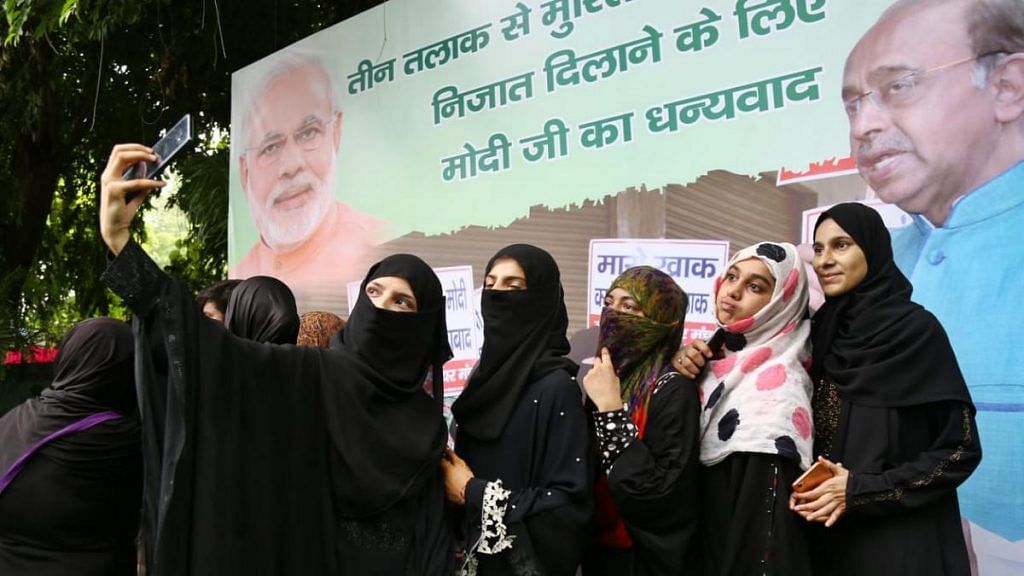
On triple talaq, he said cases became more prevalent due to men getting bad legal advice.
“The number of triple talaq cases increased due to lawyers. They would advise anyone to give triple talaq,” he said.
But from Shah Bano to the triple talaq struggle, the Board’s positions on women’s rights have been widely criticised as patriarchal and unjust. And now more women are knocking on the doors of courts for justice.
Earlier this month, the Supreme Court ruled that a Muslim woman who has been illegally divorced via ‘triple talaq’ can seek maintenance under the “religion-neutral” Section 125 of the CrPC, regardless of personal laws.
At a 14 July meeting in Delhi, the AIMPLB resolved to challenge the court’s decision, authorising its president to deploy “all possible legal, constitutional, and democratic measures.” Their arguments echo their objections to triple talaq—further problems for women.
Triple talaq crusader Shayara Bano, however had a different take: “We all live in the same country so it is important to have the same law and justice for all.”
Also Read: ‘Men will now abandon, not divorce’ – Muslims divided over Supreme Court alimony verdict
Babri Committee to UCC Committee
Apart from internal challenges, the AIMPLB is under increasing external pressure.
In the Babri Masjid case, the board fought vigorously, rallying the legal battle even though it wasn’t a litigant. Its then secretary, the late lawyer Zafaryab Jilani, was one of the most prominent faces of the Muslim side. Despite having to accept the Supreme Court’s verdict favouring the Hindu side, the board stands firm that the site is a mosque and will remain so until Judgment Day.
Now, Hindu organisations are making historical claims to other mosques—from Varanasi’s Gyanvapi to Mathura’s Shahi Eidgah, and the Bhojshala complex in Madhya Pradesh’s Dhar.
“The board fulfilled its responsibility during this delicate time, which was no easy task,” said AIMPLB secretary Usmani on the Ayodhya judgment. “Making claims on mosques every day is wrong. They are turning every mosque into another Babri, and we have to protect them.”
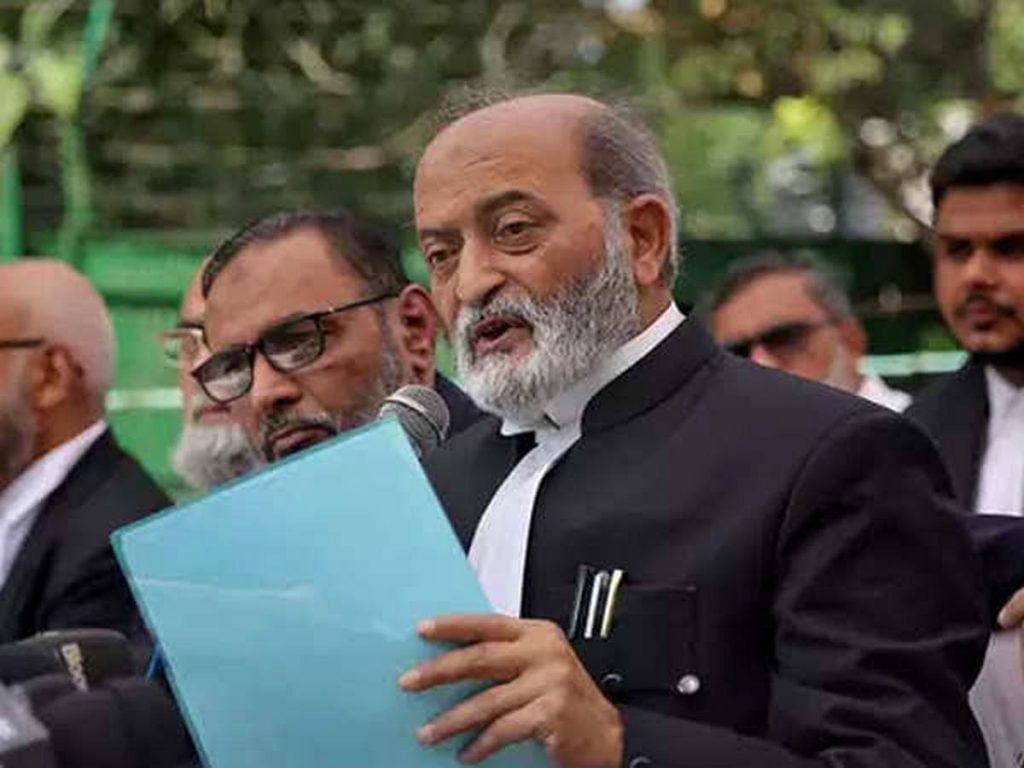
However, the board has yet to discuss whether to form a committee specifically for the protection of these mosques.
But on the matter of the UCC, it is pulling into gear and has set up a 7-member committee. At the 14 July meeting, the board resolved to challenge Uttarakhand’s UCC law in court.
Resolutions adopted at the meeting of Working Committee of All India Muslim Personal Law Board
?️ July 14, 2024, Sunday
? Masjid Jhal Piao, Bahadur Shah Zafar Marg, New Delhi pic.twitter.com/ciUz8gun9Q
— All India Muslim Personal Law Board (@AIMPLB_Official) July 14, 2024
“The Constitution gives us complete freedom to follow our religion. Hindus, Muslims, Sikhs, Christians, and others can follow their religion,” Faruqui said after the meeting.
The AIMPLB has not yet decided which stakeholders from other communities to engage, but Sikh, Parsi, Christian, Buddhist, and tribal organisations are already opposing the UCC, arguing that it infringes on their constitutional right to practice their religions and follow personal laws.
Rahmani stated that the Board will fight against the UCC just as they did with Babri Masjid and triple talaq.
Tayeba recounted that during the thick of the triple talaq fight, her calendar was packed with community awareness programmes 365 days a year. It’s this kind of dedication and unity she is hoping to see now for the sake of the AIMPLB’s future.
“Our community is stuck between an oppressive government and illiteracy-poverty. We shouldn’t wait for extreme situations,” she said. “Opposing the UCC is a shared concern, and we are united in this stance.”
(Edited by Asavari Singh)



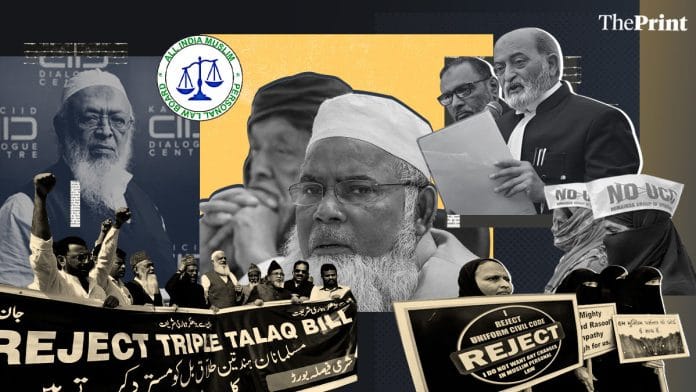



Ms Heena was expected to know the relationship between the current president and the previous one.
The Print would have served itself well by verifying this important piece of information.